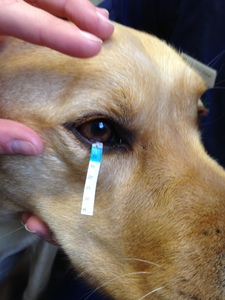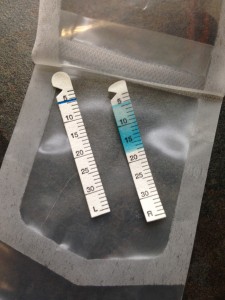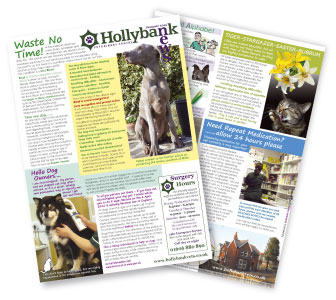The ‘Take a closer look’ campaign is set to start this month and aims to encourage dog owners to get their pet checked for Keratoconjucitivitis Sicca (KCS), a condition also known as dry eye.
KCS develops as a result of the dogs own immune attack on the glands which produce tears. If not identified early the gland can be completely destroyed and he dogs natural tear production becomes significantly reduced to absent. An eye without tears becomes very dry and the condition is painful. Without the support of a natural tear film the eye is susceptible to secondary problems such as conjuctivitis, bacterial infections and corneal ulcers. If untreated it can eventually lead to blindness.
Dry eye affects up to 1 in 22 dogs. It can be found in any breed at any age, although certain breeds are more susceptible. The appearance can be variable, although typical signs include ocular discharge, ocular discomfort, red, inflamed or dry looking eyes.
Diagnosis is made using a Schirmer tear test. The test is quick, simple and tolerated well by most dogs. A piece of schirmer testing paper is paced into the eye to measure the level of tear production. The procedure can be performed in conscious patients and takes only a couple of minutes. It is important to make a diagnosis early in order to preserve as much of the tear gland tissue as possible.
Treatment acts to stop the underlying immune attack of the glands therefore dry eye requires lifelong treatment. Treatment is an eye ointment containing Ciclosporine. This drug also acts to help increase natural tear production and control pain. Additional lubricating drops are sometimes added to the eye also.
The campaign is launched by MSD animal health and will run until the 31st August. The campaign allows a voucher to be redeemed which entitles your pet to a free Schrimer tear test.
To download the voucher please register at http://www.mypetonline.co.uk/ and join the Hollybank Veterinary centre page. Click on the dry eye link to make your voucher.





